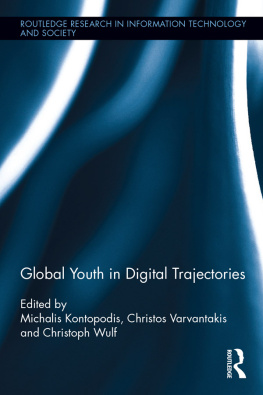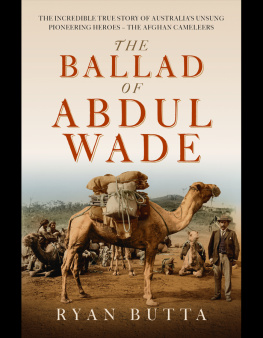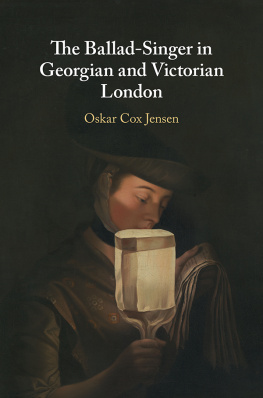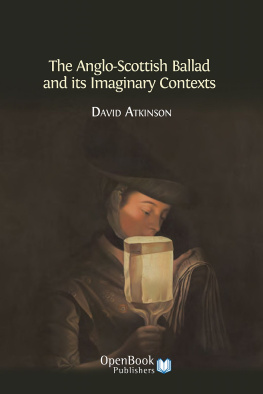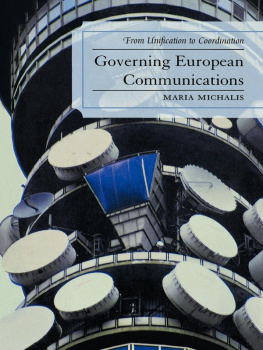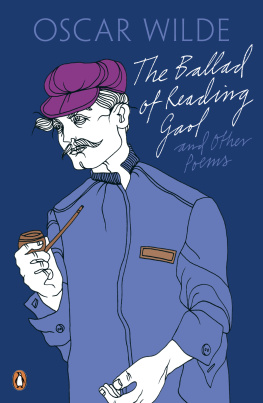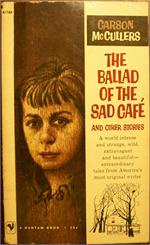Michalis Ganas - A Greek Ballad
Here you can read online Michalis Ganas - A Greek Ballad full text of the book (entire story) in english for free. Download pdf and epub, get meaning, cover and reviews about this ebook. year: 2019, publisher: Yale University Press, genre: Detective and thriller. Description of the work, (preface) as well as reviews are available. Best literature library LitArk.com created for fans of good reading and offers a wide selection of genres:
Romance novel
Science fiction
Adventure
Detective
Science
History
Home and family
Prose
Art
Politics
Computer
Non-fiction
Religion
Business
Children
Humor
Choose a favorite category and find really read worthwhile books. Enjoy immersion in the world of imagination, feel the emotions of the characters or learn something new for yourself, make an fascinating discovery.

- Book:A Greek Ballad
- Author:
- Publisher:Yale University Press
- Genre:
- Year:2019
- Rating:5 / 5
- Favourites:Add to favourites
- Your mark:
- 100
- 1
- 2
- 3
- 4
- 5
A Greek Ballad: summary, description and annotation
We offer to read an annotation, description, summary or preface (depends on what the author of the book "A Greek Ballad" wrote himself). If you haven't found the necessary information about the book — write in the comments, we will try to find it.
A Greek Ballad — read online for free the complete book (whole text) full work
Below is the text of the book, divided by pages. System saving the place of the last page read, allows you to conveniently read the book "A Greek Ballad" online for free, without having to search again every time where you left off. Put a bookmark, and you can go to the page where you finished reading at any time.
Font size:
Interval:
Bookmark:
A Greek BalladA Greek Ballad: Selected PoemsMICHLIS GANSTRANSLATED FROM THE GREEK BY DAVID CONNOLLY AND JOSHUA BARLEY YALE UNIVERSITY PRESS NEW HAVEN & LONDON A MARGELLOSWORLD REPUBLIC OF LETTERS BOOK The Margellos World Republic of Letters is dedicated to making literary works from around the globe available in English through translation. It brings to the English-speaking world the work of leading poets, novelists, essayists, philosophers, and playwrights from Europe, Latin America, Africa, Asia, and the Middle East to stimulate international discourse and creative exchange. Introduction and English translation copyright 2019 by David Connolly and Joshua Barley. The Greek poems in this book were originally published in the volumes identified in the text and republished in the collection 19782012 in 2013 by . Copyright 2013 by Ekdoseis Melani. All rights reserved.
This book may not be reproduced, in whole or in part, including illustrations, in any form (beyond that copying permitted by Sections 107 and 108 of the U.S. Copyright Law and except by reviewers for the public press), without written permission from the publishers. Excerpt from The Hollow Men: from Collected Poems, 19091962, by T. S. Eliot. Copyright 1936 by Houghton Mifflin Harcourt Publishing Company.
Copyright renewed 1964 by Thomas Stearns Eliot. Reprinted by permission of Houghton Mifflin Harcourt Publishing Company. All rights reserved; from Collected Poems, 19091962, by T. S. Eliot (London: Faber and Faber Ltd, 1963). Yale University Press books may be purchased in quantity for educational, business, or promotional use.
For information, please e-mail (U.K. office). Printed in the United States of America. Library of Congress Control Number: 2019934114 ISBN 978-0-300-23334-6 (hardcover : alk. paper) A catalogue record for this book is available from the British Library. 10 9 8 7 6 5 4 3 2 1 CONTENTSINTRODUCTION Michlis Ioannis Gans was born in Tsamadas, a small village in Epirus, northwest Greece, in January 1944. 10 9 8 7 6 5 4 3 2 1 CONTENTSINTRODUCTION Michlis Ioannis Gans was born in Tsamadas, a small village in Epirus, northwest Greece, in January 1944.
The house of his birth, built of stone, is on the edge of the village, at the end of a secluded track lined by ferns. From the veranda the imposing ridge of Mount Mourgana delineates the view and glows red in the evening. On the other side of the ridge is Albania. The mountainside is creviced by limestone gorges, one of which recalls the shape of a foxs head. Down the road is the slate-roofed monastery of Saint George, now empty of monks. The place is watered by springs and densely forested.
Wild boar throng the mountain, troubled occasionally by the rifle of the poets father, who is well into his nineties. Sublime, violent beauty reigns over an ever-decreasing population which is characteristicallyand certainly in Ganss conceptionDoric, stoic, taciturn. The poet has lived in Athens for over fifty years, but his homeland seeps into all his poetry. His knack of summoning it up in image and rhythm verges on the metaphysical. The land dawned with mountain upon mountain, begins Glimmering Ynnena, somewhat vatically (Ynnena is Ioannina, the capital of Epirus). Scattered throughout his oeuvre are the fickle, slippery mountains of that land, the plane trees of its villages, and the blackbirds in the foliage.
The birds of old come and swoop down inside me, he writes in The Wild and the Tame, a sequence of prose poems from Black Stones (1980). The poet is often at his best when his old landscape intrudes in this way. He has the physical quality of breathing life into his subject matter, animating it, rather than simply describing it. He likes to tell the story of how Miltos Sachtourisone of the towering figures of the previous generation of Greek poetssought him out once in the bookshop where he worked. I have been a hunter all my life, said the older poet, who did not need to introduce himself, and when you say Woodcocks are dethroned by a bang, I know exactly what you mean. He shook Ganss hand and walked out.
Epirus was no Garden of Eden and nature no warm bosom. Unlike many compatriot predecessors, notably Ioannis Vilaras (17711823) and Kostas Krystallis (18681894), Gans avoids the nostalgic re-creation of a lost homeland. The Wild and the Tamethe title of which, taken from a childrens book, alludes to a dichotomy that runs through all the poets workis the epitome of his bleak vision of village life. The sequence is dedicated to Kostas Krystallis, whom he calls a younger brother, with poignancy and condescension in equal measure: Krystallis died at twenty-six and never matured as a poet. At the time of Ganss birth the region was in the grip of two wars that would decisively change the place and its people: having blocked the Italian advance in 1940, the mountains became the arena for the grimmest privations of the German occupation, and then the bitterest fighting of the Greek Civil War (194649). Mount Mourgana itself was the site of heavy fighting in 1948, in which the Communist forces lost decisively to the Greek army.
As they retreated into the Eastern Bloc, they took the populations of entire villages with them. Gans was carried off with his mother, brother, grandparents, and various cousins to Shkodr in Albania. Some months later, a Polish steamer took them to Gdansk, then on to Hungary by train: to Balaton, and then to the village of Beloiannisz, where they stayed for several years. Two family members were buried there. Ganss experiences of that first exile are documented in his prose work Stepmotherland (1981). The family returned to the village, but the conditions were insupportable.
One by one the family members left home. This rupture in village life followed a painful, centuries-old tradition: family separation resulting from the condition known as xenitialiving far from home. Consequently, Ganss poems, like many of the regions folksongs, are watered by the fragility and ambiguity of this condition, which is pregnant with metaphor. His younger brother and father would join relatives in Massachusetts, while in 1962 the poet went to Athensthe most foreign capital of the world (One Moment, Nassos). It took Gans years to acclimatize to the life of Athens. It was cotton wool compared to the rough, gorse-made fabric of the village.
It was comfortable, but anonymous and numbing. He clung to the folksongs of his home as if to a life raft, at one point feverishly taking dictation from a great-aunt who lived in the colorful Monastiraki district. Her zeal spurred him on. He had enrolled in the law school of the University of Athens, but left before he took his degree. He found work in a zipper factory in Piraeus before turning to bookselling, becoming a recognizable figure in a large bookshop in the center of Athens, named (like the ancient site near Ynnena) Dodona. Gradually the poet was taming the beast of the city: The grudge I bore you, like a mules, / on what bus did I let it slip? (In Haftia Lay Me to Rest).
Nothing aided this acclimatization more than his meeting with an Athenian woman, Poppy Krippa, who was cutting a dash in the publishing world of the city. Through Poppy, Gans found his feet anchored and his verses flowing. They were married on July 14, 1974. Now, almost fifty years since they met, Poppy Ganss publishing house, Melani, publishes her husbands work. Duration, says the poet, is passion. It was during a short hiatus from Dodona, when the couple had set up their own bookshop, that Ganss poems were first noticed by Philippos Vlachos, of the publishing house Keimena.
It is indicative of the poets character that Vlachos had known Gans for five years before discovering that he wrote poetry. Immediately impressed by what he read, he published three of Ganss books in quick succession:
Next pageFont size:
Interval:
Bookmark:
Similar books «A Greek Ballad»
Look at similar books to A Greek Ballad. We have selected literature similar in name and meaning in the hope of providing readers with more options to find new, interesting, not yet read works.
Discussion, reviews of the book A Greek Ballad and just readers' own opinions. Leave your comments, write what you think about the work, its meaning or the main characters. Specify what exactly you liked and what you didn't like, and why you think so.


